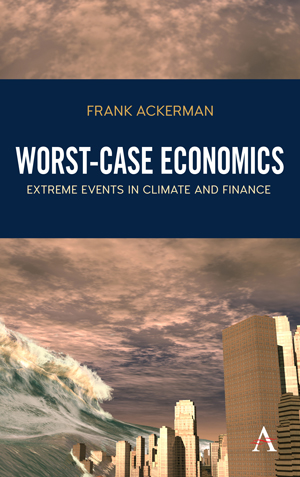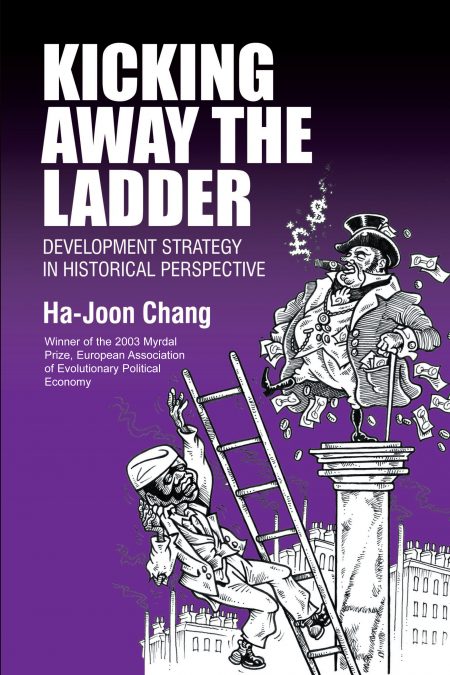Worst-Case Economics
Extreme Events in Climate and Finance
Title Details
- ISBN: 9781783087075
- October 2017
- Pages: 208
- Imprint: Anthem Press
Why do climate and financial crises pose such extreme risks? And what does it take to respond effectively to those risks? Extreme weather events – storms and sea-level rise, heat waves, droughts and floods – seem ever more common and extreme, while scientists warn of even greater climate risks ahead. Financial failures on the scale of 2008 make a mockery of the supposed efficiency of the market economy. None of this would be possible in the world as imagined by conventional economics – an imaginary land of gradualism, equilibrium, well-informed rationality and the win-win solutions dealt by the invisible hand.
The erratic rhythm of boom and bust in financial markets could be explained either by the patterns of crowd-following behaviour among investors, or by the unequal distribution of wealth (and the impact of the largest investors on the markets). Climate crises reflect the fact that natural systems can reach tipping points or critical transitions, where gradual change gives way to large-scale discontinuous changes. The economics of climate change has lagged behind the science, understating the severity of the problem and the likelihood of a crash.
While the causes of climate and financial extremes are distinct, the implications for public policy have much in common. The frequency of extreme events, of varying sizes, means that there is no way to predict the likely size of future crises. The traditional approach to risk aversion cannot account for longstanding patterns in financial markets. Better theories of risk call for more precautionary approaches to both financial and climate policy. In the frequent cases in which potential outcomes have unknown probabilities, the best policy is based on the worst-case credible scenario. When a single catastrophic risk commands everyone’s attention, a World War II-style, costs-be-damned mobilization is the right response. There is no formula for perfect responses to extreme risks, but there are important guideposts that point toward better answers.
Frank Ackerman is an economist whose extensive research and writing focus on climate change and energy, environmental policy and cost-benefit analysis.
List of Figures; 1. Introduction; 2. Steam-engine economics; 3. Beyond homo economicus; 4. Big and dirty; 5. Pictures of improbability; 6. Trillions, or only hundreds?; 7. Zipf’s law and other stories; 8. Ants and traders; 9. Too big to ignore; 10. Climate tipping points and known unknowns; 11. Predators and prey; 12. Good enough for government work; 13. Fat tails and the failure of forecasting; 14. Misunderstanding risk; 15. Choices beyond calculation; 16. Who won World War II?; 17. Conclusion; Acknowledgments; Bibliography; Index.
Worst-Case Economics — Book’s Web Page
Webinar on the Book by Frank Ackerman
“Old-fashioned economics has led to dangerously wrong-headed approaches to climate change and other ‘extreme event’ situations, such as financial crises. In this highly accessible but profound book, Ackerman persuasively shows the urgency of smarter, more recent thinking about how natural and economic systems work and why we need to pay much more attention to worst cases. This is a must-read book for anyone who wants to understand the world we now inhabit.”
—Juliet Schor, author of Plenitude: The New Economics of True Wealth
“Ackerman’s Worst-Case Economics will convince you that the conventional economic modeling of risk is inadequate when financial crashes, environmental collapse and other cataclysmic outcomes are possible and that policies based on prudence regarding the worst-case scenario are needed. An important book and a delight to read.”
—Samuel Bowles, Research Professor and Director, Behavioral Science Program, Santa Fe Institute, New Mexico, USA
Related products
-
-
Globalization and Challenges to Building Peace
Edited by Ashok Swain, Ramses Amer, Joakim Öjendal
December, 2007
£115.00 / $115.00 -
Tobacco Control and Tobacco Farming
Separating Myth from Reality
Edited by Wardie Leppan, Natacha Lecours, Daniel Buckles
September, 2014
£99.00 / $99.00 -
Kicking Away the Ladder
Development Strategy in Historical Perspective
Ha-Joon Chang
July, 2002
£26.95 / $26.95 -
Decolonial Perspectives on Entangled Inequalities
Europe and The Caribbean
Edited by Encarnación Gutiérrez Rodríguez, Rhoda Reddock
February, 2021
£125.00 / $125.00 -
Rural India Facing the 21st Century
Essays on Long Term Village Change and Recent Development Policy
Edited by Barbara Harriss-White, S. Janakarajan
July, 2004
£115.00 / $115.00







